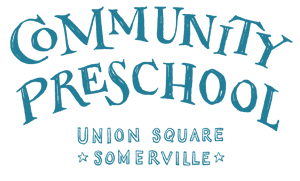Q: You’ve had more than twenty-five years of experience teaching preschool. What are the things that excite you about teaching this age group?
A: I really love my work. I am so excited by how much children learn and grow during early childhood, especially with consistency and kindness in their classrooms. I appreciate the openness of preschool children, their boundless curiosity about the world around them, and their playfulness. I am lucky to have the opportunity to facilitate this important time in the development of children’s personalities. Preschool can lay a strong and vital foundation for children’s development as people and as lifelong learners.
Q: What are some of the unique aspects of your teaching?
A: One unique aspect of my teaching is my belief that the social and emotional development of children is the foundation for their later success in school. I try to have a language of connection and communication with every child in my class so that they know I believe what they think is meaningful and important. I also love to bring music and theater to the classroom, and my own background in these areas makes it possible for me to weave singing, dancing, and acting into each day. Additionally, while knowing the skills that most preschool children need to feel competent in school, I am able to allow a child’s interests guide how we teach those skills. Last but not least: my incredible gift for rhyme!
Q: What are some of the most common questions asked by parents exploring preschool for the first time?
A: Here are a few:
(1) How will you help my child if he or she is feeling sad?
At our school, we start from a deep understanding of how first transitions can be for young children. Then, we have teaching tools available to concretely address those issues. For example: creating a goodbye plan with a loved family member, giving a child a safe place to explore their feelings about saying goodbye, providing opportunities for children to meet teachers and see the classroom before coming to the program, and, most importantly, communicating openly and well with parents, building trust with families and working together to help children succeed.
(2) How will you help my child if she or he is feeling angry and/or how do you deal with challenging behaviors in the classroom?
We understand children's development and we see challenging behaviors in that context: as a typical and important part of children's growth and independence. First, we create curriculum and play experiences that are meaningful to all children so that they are engaged and interested in school. Together with students, we create clear, kind, and consistent expectations for classroom community work. We use group discussions from the start of school about feelings: having feelings, experiencing them, and then being able to rejoin the group. Where it is possible, we also create opportunities for children to repair a problem or fix a mistake. We also help children with breathing techniques for calming down. Clear and open communication with parents when behaviors are noticed at school helps us work together as a team.
(3) If my child is “playing” so much, will he or she really be ready for Kindergarten?
Children make meaning of their world through play. Exploration that encourages their interests while embedding skills gives children opportunities to creatively solve problems, deepen their understanding, and create new avenues of inquiry. Allowing children to explore their interests teaches me more how to help them grow. In the fast-paced world that we inhabit, the early childhood time is critical because of its opportunity to support children’s learning through play. Also, it’s really fun to play. Early childhood should be fun! I never cease to be amazed by how many approaches there can be to a single play experience.
Q. What are some of the questions you would ask if you were exploring a preschool for your own child?
I would ask many of the same questions that parents ask me: Will my child be validated in their social and emotional experiences? How will my child be supported in their strengths and areas where growth is needed? What are three things that teachers think are really fun at this school? I would hope to see all staff members happily engaged with children or excited to talk about their work.
Q. What are a few things that parents can do to prepare their kids for preschool?
· Plan a simple goodbye routine and stick to it.
· Talk with excitement (somewhat regularly) about school.
· Read books about school. Take some time to pretend about what it might be like to go to school.
· Validate all of the feelings your child may have about school.
· (I would encourage parents to convey confidence in their school of choice, even if they are feeling nervous themselves.)




